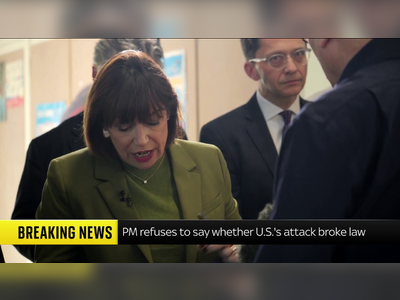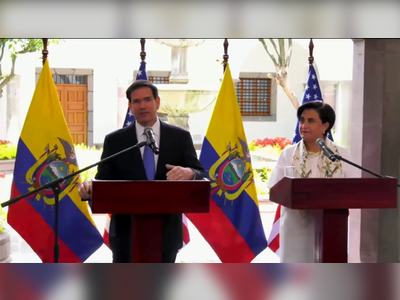
Supreme Court wrestles with Republican bid to transform U.S. elections
The court, which has a 6-3 conservative majority, heard about three hours of arguments, with some of its conservatives including Samuel Alito and Clarence Thomas indicating sympathy toward the Republican arguments. The position of others including Chief Justice John Roberts was harder to read, raising the possibility of a ruling less broad than the Republican state lawmakers pursuing the appeal seek. The three liberal justices signaled opposition to the Republican arguments.
The lawmakers are appealing a decision by North Carolina's top court to throw out a map delineating the state's 14 U.S. House of Representatives districts - approved last year by the Republican-controlled state legislature - as unlawfully biased against Democratic voters.
The Republican lawmakers are asking the Supreme Court to embrace a once-marginal legal theory that has gained favor among some conservatives called the "independent state legislature" doctrine. Under that doctrine, they claim that the U.S. Constitution gives state legislatures - and not other entities such as state courts - authority over election rules and electoral district maps.
Critics have said that the theory, if accepted, could upend American democratic norms by restricting a crucial check on partisan political power and breed voter confusion with rules that vary between state and federal contests. North Carolina's Department of Justice is now defending the actions of the state's high court alongside the voters and voting rights groups that challenged the Republican-drawn map. They are backed by Democratic President Joe Biden's administration.
"This is a proposal that gets rid of the normal checks and balances on the way big governmental decisions are made in this country," liberal Justice Elena Kagan said, referring to the interaction between the executive, legislative and judicial branches of government. "And then you might think that it gets rid of all those checks and balances at exactly the time when they are needed most."
The United States is grappling with sharp divisions over voting rights. Republican-led state legislatures have pursued new voting restrictions in the aftermath of Republican former President Donald Trump's false claims that the 2020 election was stolen from him through widespread voting fraud.
"Think about consequences," Kagan said, "because this is a theory with big consequences."
Kagan said the theory would free state legislatures to engage in the "most extreme form of gerrymandering" - drawing electoral districts to unfairly improve a party's election chances - while enacting "all manner of restrictions on voting" and ending "all kinds of voter protections."
Kagan said state legislators often have incentives, in the interest of winning re-election, to suppress, dilute and negate votes. Kagan said the theory also could free legislatures to insert themselves into the certification of the outcome of federal elections - a sensitive issue in light of the Jan. 6, 2021, rampage at the U.S. Capitol by Trump supporters who sought to block congressional certification of Biden's 2020 election victory.
Alito dismissed arguments that state legislatures would be unchecked if the Republican position carried the day.
"Under any circumstances, no matter what we say the 'Elections Clause' means, Congress can always come in and establish the manner of conducting congressional elections," Alito said, referring to the Constitution's elections language.
"The reason we have a case is the power does not simply come from the state constitution but the power comes from the federal Constitution, which authorizes the legislature to carry into effect," Roberts said.
'LACK THE AUTHORITY'
David Thompson, a lawyer for the state lawmakers, told the justices that the Constitution "requires state legislatures specifically to perform the federal function of prescribing regulations for federal elections. States lack the authority to restrict the legislature's substantive discretion when performing this federal function."
The Supreme Court's eventual decision, due by the end of June, could apply to 2024 elections including the U.S. presidential race.
The doctrine is based in part on the Constitution's language stating that the "times, places and manner" of federal elections "shall be prescribed in each state by the legislature thereof."
Roberts noted that the state lawmakers had conceded that even under their legal theory the Constitution would still allow a state governor to veto any measures passed by the state's legislature.
"Vesting the power to veto the actions of the legislature significantly undermines the argument that it can do whatever it wants," Roberts said.
The Republican lawmakers have argued that the state court unconstitutionally usurped the North Carolina General Assembly's authority to regulate federal elections. Thompson also argued that state constitutions cannot impose substantive limits on the actions of legislatures on federal elections.
Conservative Justice Brett Kavanaugh told Thompson that his position on the independent state legislature theory's breadth "seems to go further" than that conceived by then-Chief Justice William Rehnquist in a 2000 ruling deciding a presidential election's outcome - an opinion seeing state courts as exceeding their authority toward federal elections.
Elizabeth Prelogar, arguing for Biden's administration, said empowering state legislatures in the way the Republican lawmakers want would "wreak havoc on the administration of elections across the nation," and lead to federal courts being flooded with lawsuits asking them to weigh in on state-administered elections.
Neal Katyal, arguing on behalf of voting rights groups, said that to accept the independent state legislature theory would mean that for 233 years the U.S. Constitution's elections language has been read incorrectly.
Thomas questioned whether Katyal, who served as acting solicitor general under Democratic former President Barack Obama, would be making the same arguments if North Carolina's legislature adopted a congressional map that was "very, very generous to minority voters" and the state's high court then invalidated it.
North Carolina's legislature approved its congressional map in November 2021. Two groups of plaintiffs sued, arguing that the map violated state constitutional provisions concerning free elections and freedom of assembly, among others. The North Carolina Supreme Court struck down the map in February. A lower state court subsequently rejected the legislature's redrawn map and adopted one drawn by a bipartisan group of experts.











